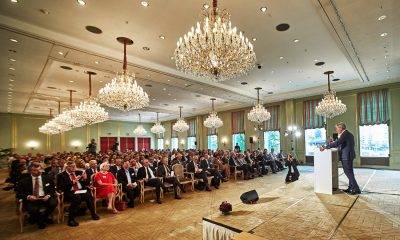

Banking
Czech National Bank: “Don’t Be Afraid of Bitcoin
The Czech National Bank has published a statement addressing bitcoin and cryptocurrency on its website. The document addresses the popularity of bitcoin in Prague and the Czech Republic, discusses whether cryptocurrency poses a threat to the traditional banking system, and argues that fiat currencies comprise better currencies than bitcoin due to price stability.
The Czech National Bank’s statement regarding cryptocurrency is titled “Don’t be afraid of bitcoin”, and seeks to address popular assertions regarding the potential threats that bitcoin and cryptocurrency may pose to existing monetary systems.
The document starts by stating that “Prague is home to a strong community of cryptocurrency supporters and users.” The statement then immediately turns to “questions regarding whether institutions such as the Czech National Bank should be afraid of bitcoin…. And of their power to marginalise traditional money.”
The Czech National Bank states that there “is no reason for banks to fear” bitcoin and cryptocurrency. Virtual currency adoption is described as “negligible in its size and scope”, arguing that “electronic transactions using bitcoin worldwide amount to only 16% of the electronic transactions conducted in the Czech koruna, a currency used by just 10.5m people.”
The article argues that bitcoin does not comprise a suitable mainstream money commodity due to it’s “constantly changing price.” A “good currency” is argued to possess a stable purchasing power, with the Czech National Bank describing Bitcoin as “inherently volatile” owing to its fixed supply.
Bitcoin is described as “the antithesis of [the Czech] elastic money system, which is based on the principle that to keep the purchasing power of money relatively constant the amount of money has to change flexibly over time.” Price stability is argued to be “the most beneficial feature of money in its present form”, with the bank concluding that “there is no reason to fear that our existing monetary system will be replaced by a fixed-money alternative.”















